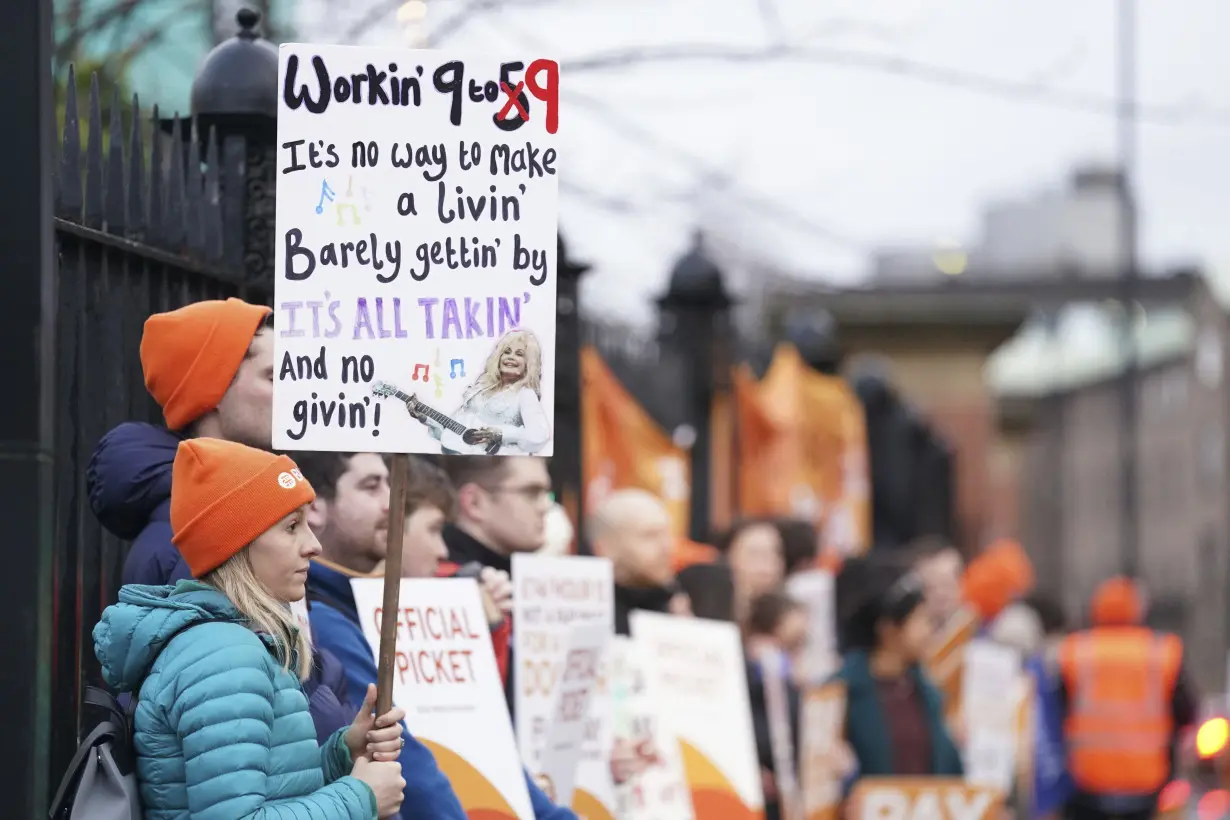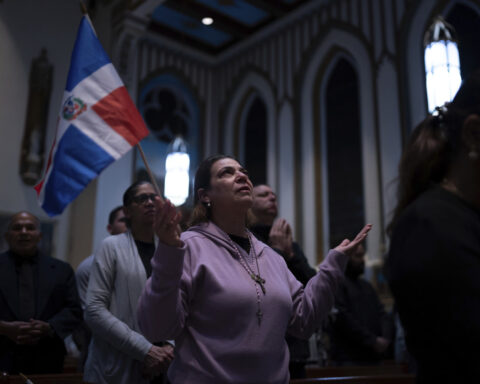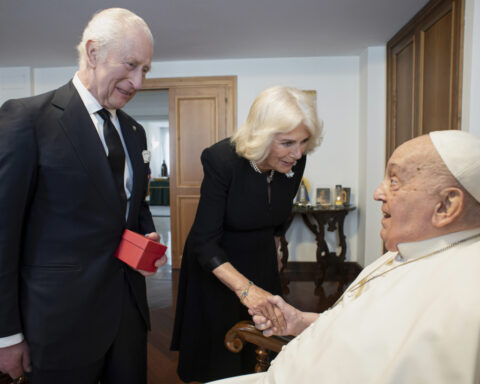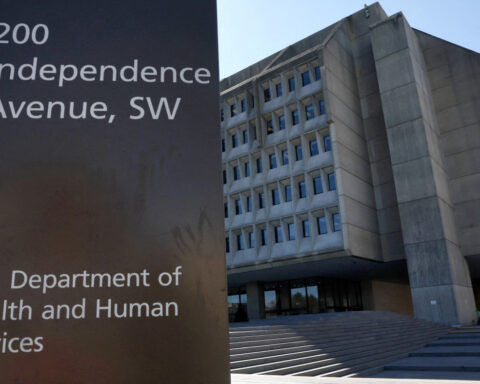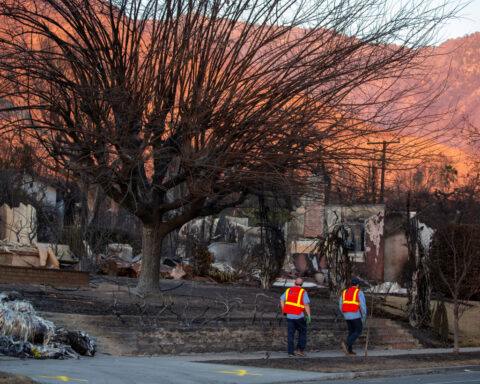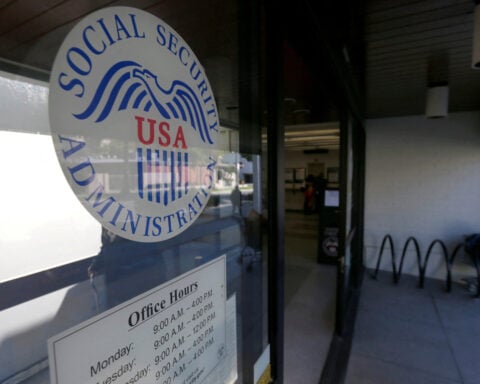LONDON (AP) — The longest scheduled strike in the history of Britain's state-funded National Health Service entered its second of six planned days Thursday with doctors in England at loggerheads with hospitals over requests for some to leave the picket line to cover urgent needs during one of the busiest times of year.
The strike is the ninth organized by doctors in the early stages of their careers in just over a year amid an increasingly bitter pay dispute with the British government. Junior doctors form the backbone of hospital and clinic care in England, and plans were laid out before this week's walkout for them to return to work if hospitals got overwhelmed.
The British Medical Association, the union that represents the bulk of the 75,000 or so striking doctors, had agreed with NHS managers on a system for so-called derogations, in which junior doctors return to work in the event of safety concerns about emergency care. Hospitals were expected to show they had “exhausted” all other sources of staffing before recalling the newer physicians.
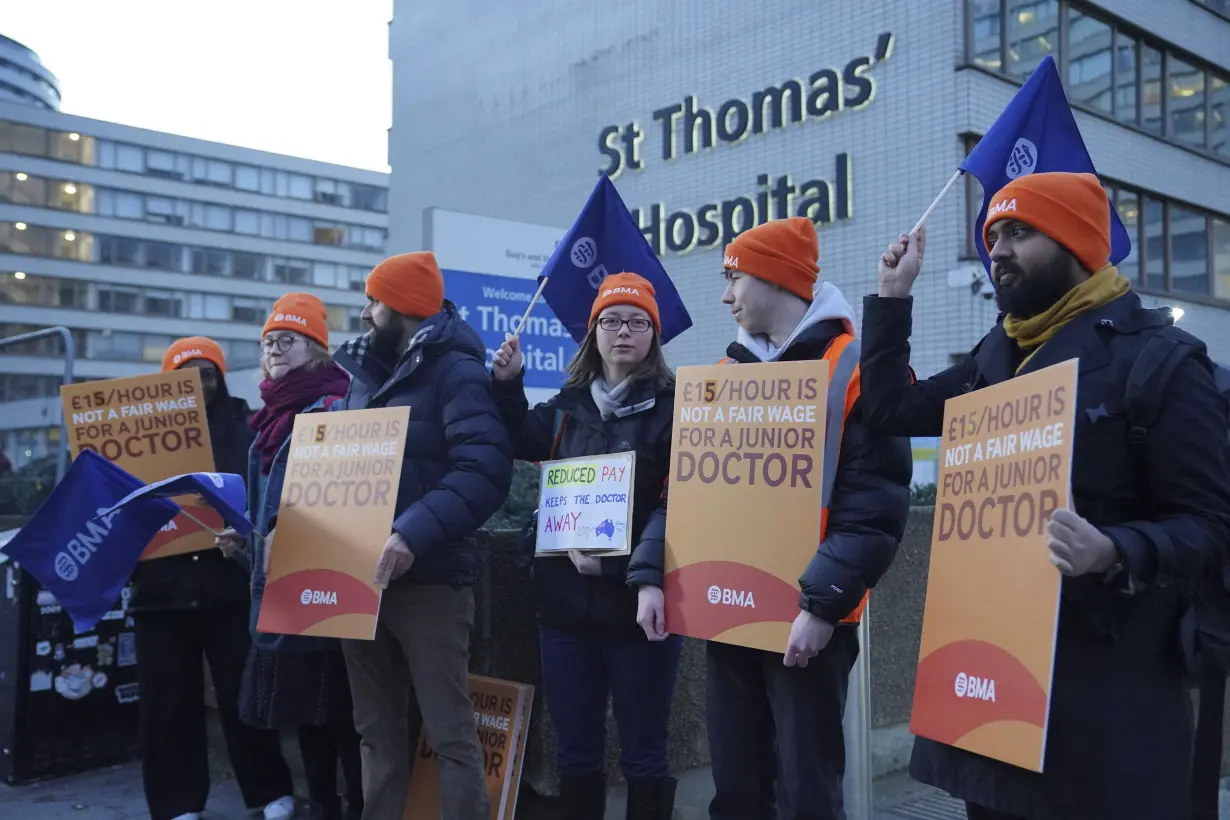
On Wednesday, the first day of the strike, hospitals made 20 requests for junior doctors to return to work due to patient safety fears. A number of hospitals declared critical incidents, and others warned of significant waits in emergency rooms. None of the requests were granted.
It's unknown how many more appeals came from hospitals on Thursday.
The BMA said the refusal of hospitals to provide the necessary data “is fundamentally undermining the derogation process." The NHS Confederation, which represents hospitals, said the form-filling took time and could undermine patient safety.
During the strike, senior doctors, known as consultants, are providing some of the care that their juniors usually provide. But there’s not enough of them to fill the gap and NHS managers have said that tens of thousands of appointments and operations will be postponed because of the walkout.
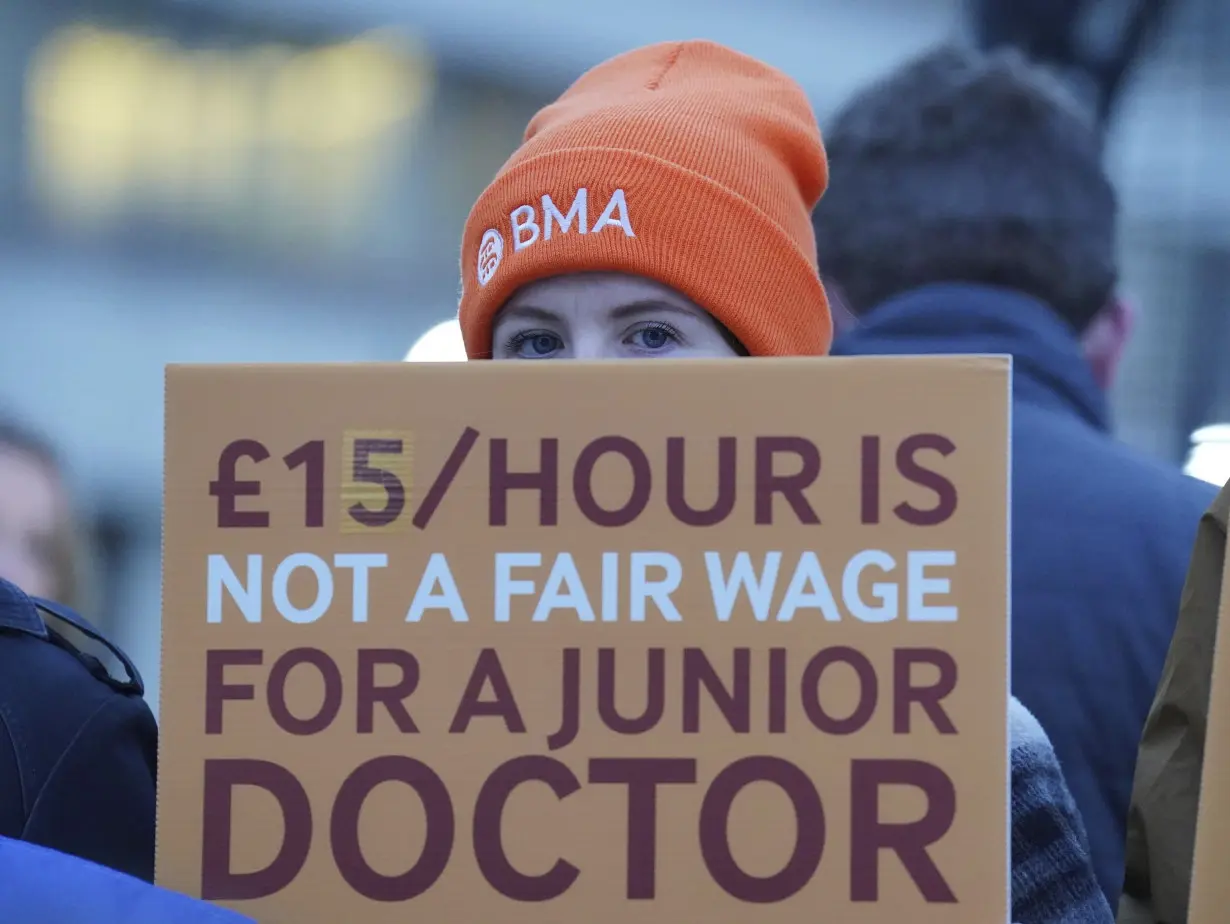
The strike is taking place at a time when hospital admissions for flu and COVID-19 cases are running at their highest rate this winter, according to figures from the U.K. Health Security Agency.
“This latest round of strike action will not only have an impact on this week but will have an ongoing effect on the weeks and months ahead as we struggle to recover services and cope with heavy demand," NHS England National Medical Director Stephen Powis said.
Britain has endured a year of rolling strikes across the health sector as staff sought pay rises to offset the soaring cost of living.
The BMA says newly qualified doctors earn 15.53 pounds (about $19) an hour — the U.K. minimum wage is just over 10 pounds (nearly $12.6) an hour — though salaries rise rapidly after the first year.
Nurses, ambulance crews and consultants have reached pay deals with the government, but negotiations with junior doctors broke down late last year. The government says it won’t hold further talks unless doctors call off the strike, while the BMA says it won’t negotiate unless it receives a “credible” pay offer.
The government gave the doctors an 8.8% pay raise last year, but the union says it was not enough as pay has been cut by more than a quarter since 2008.
The hunior doctors are due to stay off the job until 7 a.m. on Jan. 9.
Prime Minister Rishi Sunak said NHS leaders, independent of government, had his backing in urging the doctors to return to work.
“These strikes are disrupting people’s lives," he said. “They are causing an enormous amount of concern to people.”

 Trump has begun another trade war. Here's a timeline of how we got here
Trump has begun another trade war. Here's a timeline of how we got here
 Canada's leader laments lost friendship with US in town that sheltered stranded Americans after 9/11
Canada's leader laments lost friendship with US in town that sheltered stranded Americans after 9/11
 Chinese EV giant BYD's fourth-quarter profit leaps 73%
Chinese EV giant BYD's fourth-quarter profit leaps 73%
 You're an American in another land? Prepare to talk about the why and how of Trump 2.0
You're an American in another land? Prepare to talk about the why and how of Trump 2.0
 Chalk talk: Star power, top teams and No. 5 seeds headline the women's March Madness Sweet 16
Chalk talk: Star power, top teams and No. 5 seeds headline the women's March Madness Sweet 16
 Purdue returns to Sweet 16 with 76-62 win over McNeese in March Madness
Purdue returns to Sweet 16 with 76-62 win over McNeese in March Madness
